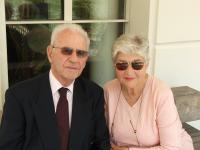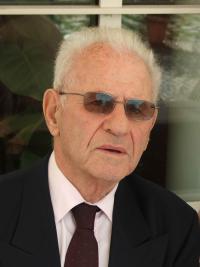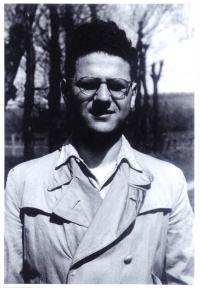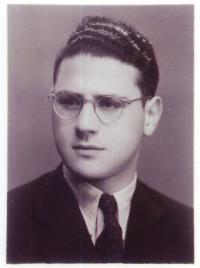“One of my reasons for emigration was that I did not want to repeat the mistakes of my father. By his vacillation he caused that ruination of our family. I could not do that. I had to leave for the sake of my children.”

Download image
A psychologist and doctor, Jiří Diamant has lived in the Netherlands since 1968. Today, he only comes home to the Czech Republic. There, he remembers his past: Jiří Diamant was born in Brno in 1930. His father was a textile salesman for a factory in South Moravia. In March 1942, the Diamant family was sent to Terezí concentration camp. Although being part of the so called “Terezí family camp”, a group of families sent to Terezín that were mostly all executed by the summer of 1944, Jiri managed to survive. In December 1943, he was sent to a different camp in Osvětim-Birkenau. He then belonged to the so called ‘Birkenau Boys’ - boys aged 12-16 from the family camp who passed through Nazi selection because of their strength and ability to work. Jiri was transported to Buchenwald in January 1945 and was liberated by the American soldiers in mid April. In May 1945 he participated in organizing repatriation of cellmates to Czechoslovakia. He completed his Psychology studies at the University in Brno after the war, and worker as a clinical psychologist. In September 1968 he emigrated to the Netherlands, where he continued to work as a clinic psychologist at the University. He was an external lecturer at universities in Prague and Brno in the 90’s.



